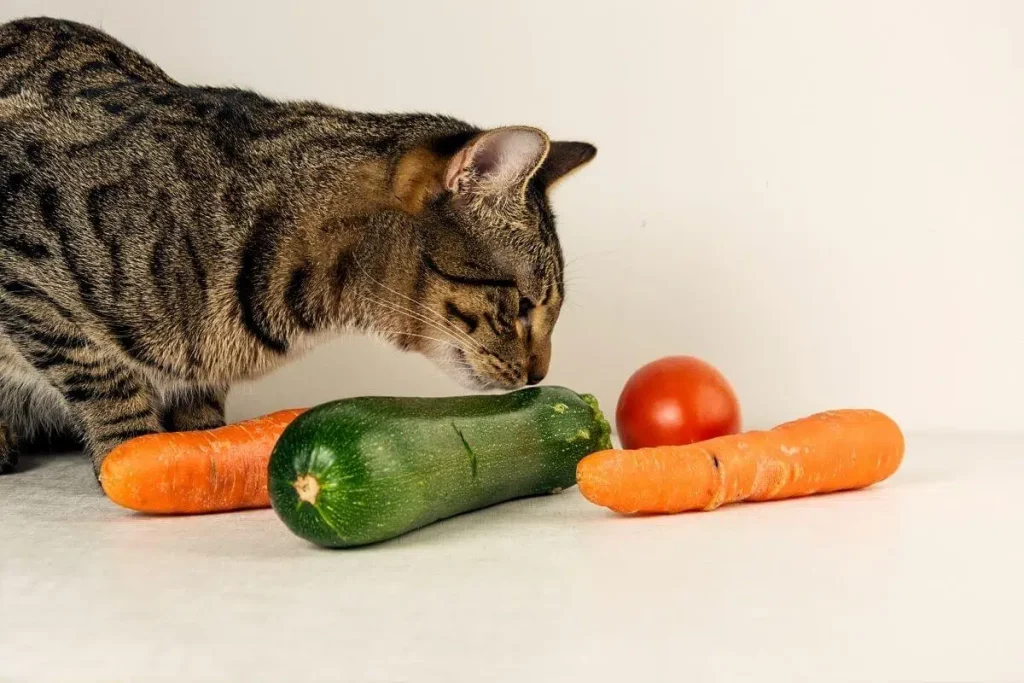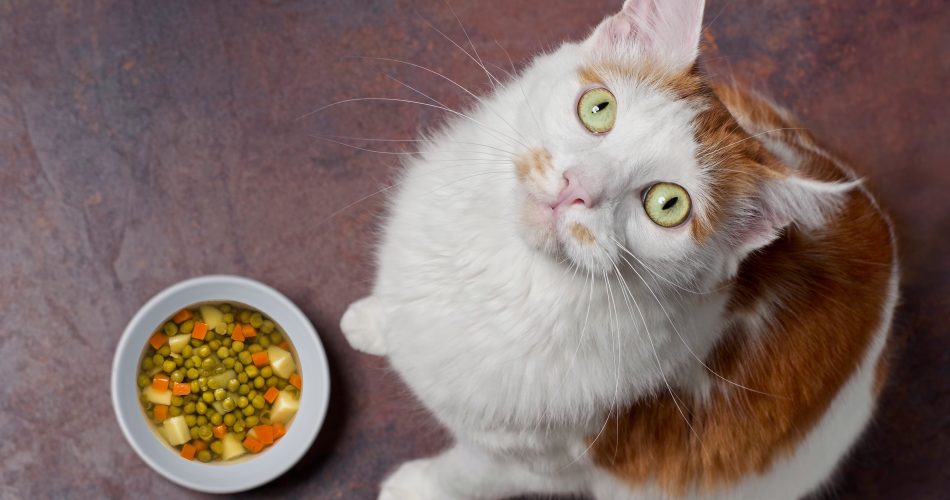As more people adopt plant-based diets for ethical, environmental, or health reasons, the question arises: Can cats, obligate carnivores by nature, thrive on a vegan diet? This debate over plant-based cat foods is one that’s gaining attention, with proponents arguing for a sustainable and cruelty-free alternative to traditional meat-based cat foods, while others point to the biological needs of cats that are designed for a meat-centered diet.
The Science Behind a Cat’s Diet
To understand why this question is so contentious, it’s important to delve into the basic biology of cats. Unlike humans and some other animals, cats are obligate carnivores. This means they need nutrients found only in animal tissue to thrive. Cats’ digestive systems, teeth, and enzymes are all adapted to eating meat. For instance, cats lack the ability to produce certain amino acids, like taurine and arginine, which are found naturally in animal tissues and are crucial for heart health, vision, and digestion.
Plant-based foods do not naturally contain these vital nutrients, which has led many experts to argue that a vegan diet for cats is inherently risky. A vegan diet would require synthetic supplementation to provide taurine, vitamin A, and other essential nutrients that a cat would usually obtain from meat. However, when these nutrients are properly supplemented, some believe it is possible to offer a plant-based alternative that meets a cat’s nutritional needs. But does that mean it’s a safe and ethical choice?
The Vegan Perspective
Proponents of plant-based cat foods argue that modern nutrition science can offer vegan cat food formulas that meet all of a cat’s needs. Many brands now sell vegan cat food, claiming their recipes are nutritionally complete and fortified with synthetic nutrients to replace those typically found in animal products.
Advocates believe that a vegan diet can help reduce the environmental impact of pet food production, which is often linked to factory farming. They point out that producing plant-based food for cats requires fewer resources—land, water, and energy—than raising animals for meat. For some, this offers a more ethical approach, as it aligns with the values of reducing harm to animals while still providing for their pets.
Additionally, there are cases of cats that have been successfully switched to vegan diets under the supervision of veterinarians. When done properly, with high-quality, well-balanced vegan food and regular health monitoring, it’s argued that cats can live long, healthy lives.

The Skeptical Side
On the flip side, many veterinarians and pet owners argue that while plant-based diets might be trendy, they may not be ideal for cats. Critics of vegan cat food argue that even with supplementation, a vegan diet is not as natural or beneficial for a cat’s long-term health as a meat-based one. Cats evolved to eat animal proteins, and feeding them a plant-based diet goes against their natural dietary needs.
The risks of an improperly balanced vegan diet for cats include taurine deficiency, which can lead to heart issues (such as dilated cardiomyopathy), vision problems, and other serious health concerns. Without taurine, cats may suffer from severe, irreversible health conditions. Additionally, other vital nutrients like vitamin A and arachidonic acid (a fatty acid) are also found primarily in animal tissue. While these can be synthetically produced and added to plant-based food, it’s still debated whether this form of supplementation is as effective as the natural sources found in meat.
Another concern is that cats are hardwired to crave protein and may have difficulty adjusting to a vegan diet. Unlike humans, who can adjust to a variety of diets, cats may have an inherent preference for animal-based food, and forcing them to switch to a vegan diet could result in finicky eating habits, malnutrition, or weight loss.
Ethical Considerations
The ethical dilemma in the vegan cat food debate is also complex. Many vegans, animal rights activists, and pet owners who are passionate about reducing animal suffering struggle with the question of how to balance their ethical beliefs with the natural needs of their pets. It can be uncomfortable to acknowledge that cats—despite being beloved members of the family—are biologically designed to consume other animals.
For some vegans, this presents a moral dilemma. They may feel that by feeding a cat a diet based on animal products, they are indirectly contributing to animal exploitation. However, for others, the belief is that keeping a cat healthy and well-fed, regardless of its diet, is the primary ethical consideration. These owners might argue that their obligation is to care for their cat’s well-being above all else, even if that means sourcing ethically-raised meat.

What Does This Mean for You?
If you’re considering feeding your cat a plant-based diet, it’s essential to consult with a veterinarian, ideally one who is knowledgeable about both feline nutrition and the potential risks and benefits of vegan cat food. Switching to a plant-based diet should never be done without professional guidance, as it requires careful planning, proper supplementation, and regular checkups to ensure your cat is thriving.
For some, a compromise might be the best approach. This could include limiting the amount of meat-based food a cat consumes while ensuring they still receive the nutrients they need. Others may feel comfortable feeding their cats a meat-based diet that aligns with their natural instincts, while making ethical choices in sourcing the meat from high-quality, sustainable producers.
In the end, the decision of whether or not to feed your cat a vegan diet is highly personal and should be made with careful thought and consideration of your cat’s health, needs, and well-being.

Conclusion
The debate over plant-based cat foods continues to grow, fueled by concerns over animal welfare, environmental impact, and health. While some argue that vegan cat food is a viable and ethical option, others caution against it, pointing to the inherent dietary needs of cats as obligate carnivores. Whether or not a cat can thrive on a vegan diet depends on various factors, including the cat’s health, the quality of the food, and whether it’s supplemented correctly.
Ultimately, the key is ensuring that your cat is getting all the nutrients it needs to live a healthy, happy life, regardless of whether those nutrients come from plants or animals. Choosing the best diet for your cat is a responsibility that should involve careful research, open-mindedness, and professional veterinary advice.
